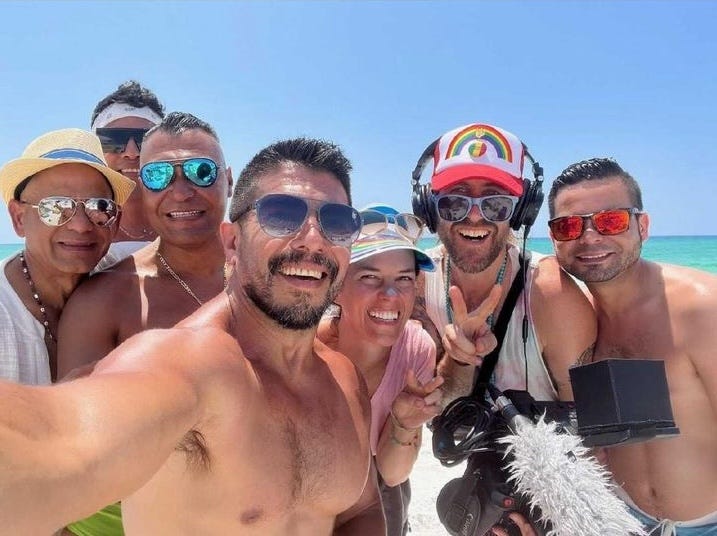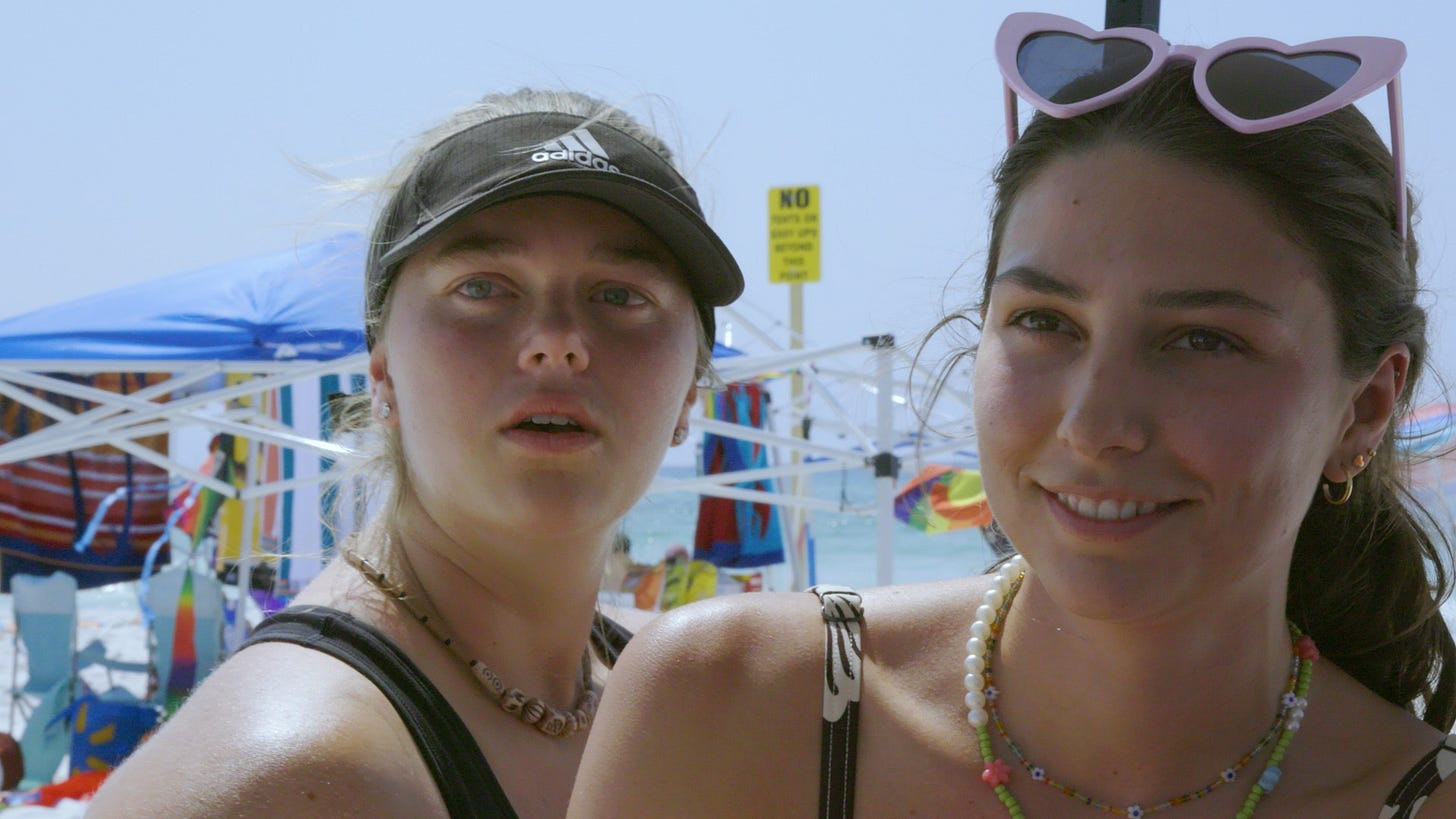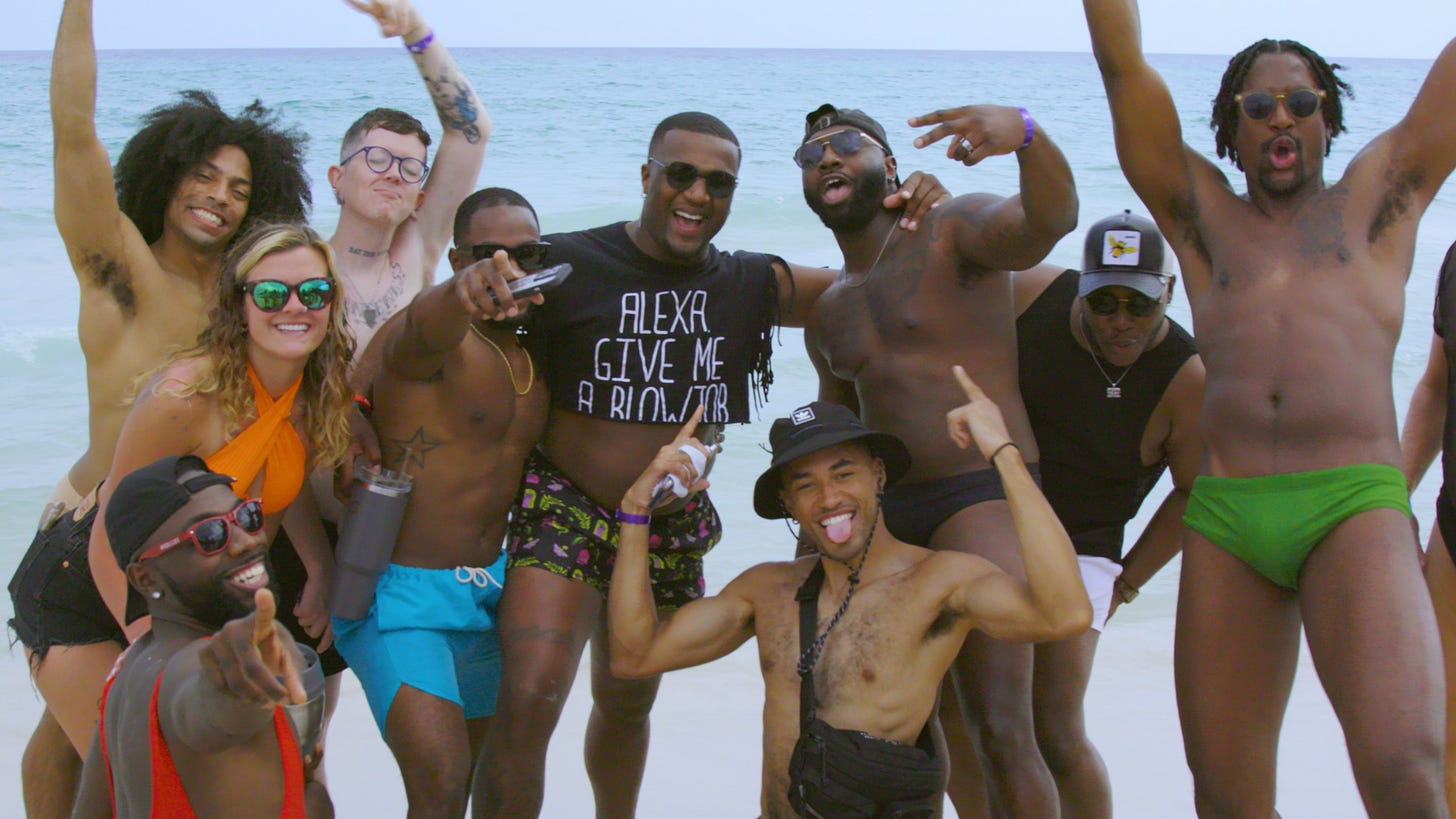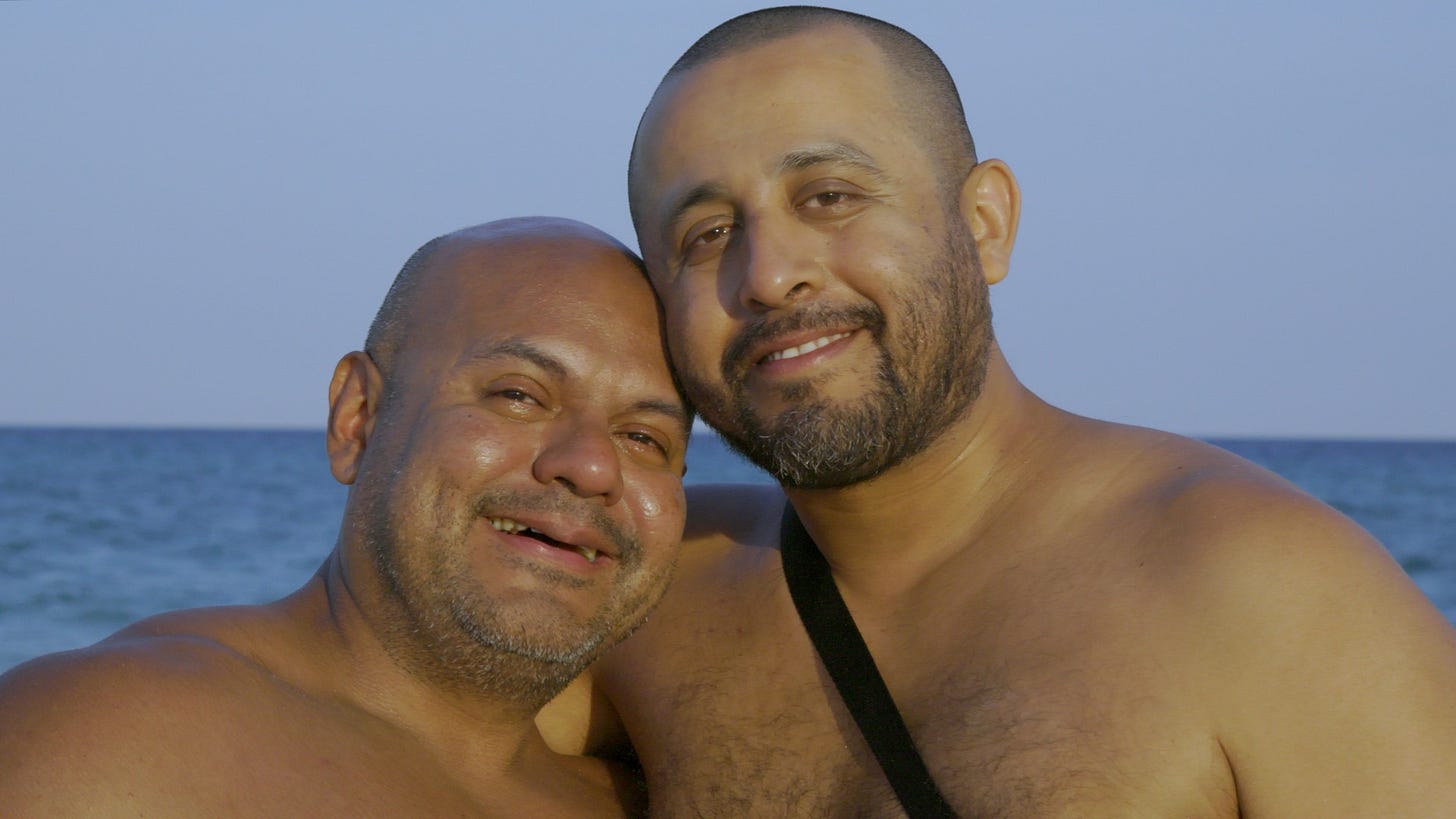Last month, Daniel and I released GAY BEACH, a half hour documentary we filmed during a three day Pride festival that takes place every summer along a stretch of shoreline nicknamed “Gay Beach” in Pensacola, Florida.
Whenever we start filming a new project, especially one that involves walking up to strangers with a camera and microphone, I often feel like I’m starting out for the very first time. The hardcore introvert in me that thinks maybe the process will be comfortable forgets and remembers once again that I cannot hide myself and make a film. In documentary, the quality of the moment captured on camera reflects the quality of the moment that takes place in real life.
And the films I love, the ones that change me, that expand my understanding of what it means to be human and force me to relinquish my judgments, are profoundly vulnerable. People allow themselves to be forever fixed on film as they are in a particular moment, exposing the beautifully tender mess of wisdom and fallibility that all of us carry. Watching them, I feel less alone. I have the courage to love my own humanity and by extension, the world.
If I want to make films that do the same, I have to step out from behind the screen and meet people with that tenderness in the real life. Judging mind abandoned, following curiosity, taking nothing personally. It’s not unlike the leap of faith required to swallow a handful of mushrooms. It requires a trust that I will be enough to meet the moment, whatever it is. And when I take that leap, I always, always find myself in the only true and lasting comfort on offer in this life: a seat in my open heart. It’s why I always return to making documentaries, why collaborating with the universe in real time is my favorite practice.
And making Gay Beach was an explosive amplification of this transformative process. It blew my heart off the hinges. I have never felt so safe in a large group of strangers. With palpable anxiety about the regressive tides sweeping the country and Florida in particular under DeSantis’ “Don’t Say Gay” legislation, it was unclear whether the annual event would even be allowed to happen. But what we found was a celebration very much on, if slightly smaller than previous years, and filled with brave, beautiful people intimately familiar with the stakes of survival, but choosing to show up anyway, be themselves, and take care of one another. It was a tremendous lesson in the power of joy and authenticity as resistance.
Starting 60ish years ago, people have gathered on Gay Beach to celebrate their love and freedom. Old timers told us how back then, friends partied along the shoreline in small, inconspicuous groups. Today more than 200,000 arrive from across the South, flooding the peninsula. Early Friday morning, they stake their plots along the beach, hauling in coolers and lounge chairs, popping up tents and PA systems, raising flags and kites, building elaborate party games and inflating lubed-up wrestling pits. People walk the beach in vibrant skin-forward outfits accessorized with spangled goggles, gloves, fans, and sarongs — ass cheeks, belly rolls, and the occasional set of tits gloriously liberated from the usual social uniforms. It is easy to lose track: are we really in the heart of conservative Florida right now?
Those who arrive alone are readily absorbed by crews who traveled together. People plop down on blankets spread by their neighbors, join in on a game of beer pong, and float through the more elaborate lounge zones built by seasoned pros. It is hard to distinguish between longtime friends and those who just met that morning.
Daniel grew up just outside Pensacola in the region’s evangelical cradle, surrounded by military bases and conservative Christian colleges. He knew Pensacola Beach as the home of the Blue Angels airshow and first heard about gay people gathering over Memorial Day weekend from the pulpit, where a dire warning came down urging families to avoid the beach during the profane display of immorality that ran rampant over a sacred holiday. In the decades since he’d moved away from Florida and the American evangelical church, he’d thought often about the people who had chosen to remain in open resistance to the condemnation that still permeates much of Southern culture. As long as I’ve known him, he’s talked about returning to make a film about it.
The first group we approached on Friday as they wrangled their tents in the wind happened to be a group of circus and drag performers from Memphis. Their generous transparency broke any inhibitions I was still carrying. When Daniel told them we could film slow motion, they romped into the surf Baywatch-style, hula-hooped and cartwheeled. One of them talked about how the sense of play that she’d discovered in the queer community after coming out had changed not only her life, but her hetero male partner’s by extension.
Kam Kam, a non-binary drag celebrity with a shining dimpled face, told us how their mother’s acceptance and support — she comes to all their shows — had taught them what real love was. It was apparent that Kam Kam was channeling this unconditional support into the world, and my face hurt from smiling just being around to them. Mid-interview, a passing couple broke in to give them a huge hug. “Kam Kam! I would recognize that ass anywhere!” one of them crowed. “I loooove you!”
But in this culture, such an embodiment of freedom is a threat to the divisive fear wielded by those in power. The performers acknowledged the uncertain implications of new “What Is a Woman” legislation. Their drag careers had created cherished community connections, involvement in literacy programs, art projects. Would they lose their livelihoods now? Would they be safe in drag?
But just like the queer ancestors generations before, they remained devoted to their commitments, determined to be visible despite the risks. Yes, they had come to the beach to play, but “activism is more than a photoshoot,” one of them said, her eyes flashing with fight.
Three days later, we had traversed miles of beach, talking to as many people as we could, shooting into bright white sand and surf, delirious with stimulation and emotion when we stumbled at sunset into an impromptu Gen-Z dance party. It was the perfect culminating note to the weekend: surrounded by the rising generation as they stepped into their authenticity. Several of them had recently had top surgery and were relishing in the freedom they felt to publicly celebrate their bodies among new friends.
“Don’t listen to older people who try to shame you,” they told us. “They’re just afraid of what they don’t understand. Love yourself.” Their clarity was radiant.
One kid told us how growing up, watching Adam Lambert on TV was the first time he realized that somewhere in the world — and possibly his own future — being gay might be acceptable. I marveled to him how transformative it was to weave through a massive public gathering where everyone loved one another, how rare it is to feel that in this world.
“Well,” he said pragmatically, “we don’t all love each other. But we do accept each other.”
Ah, right. And that acceptance resonates as profoundly radical medicine in a dominant culture determined to dehumanize us to one another.
Thank you to the people of Gay Beach for welcoming me and showing me how to be brave and stay in my heart.









